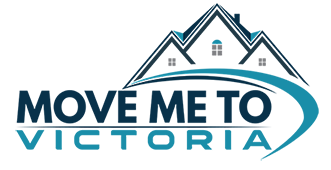Known for its flat terrain and pedestrian-friendly atmosphere, Victoria, BC offers a variety of transportation options, including driving, taking ferries, riding buses, and using bicycles. With so many choices, you can easily get around the city no matter your preferred mode of transportation.
Driving & Parking
Downtown Parking: The City of Victoria operates parkades in downtown Victoria. Most of these parkades offer free parking for the first hour, then charge $2 to $4 per hour, usually with a daily maximum of $16. They are also free from 6 PM to 9 AM daily, and are open 24 hours a day. Note that private parking garages may have higher fees. Payment at the public parkades can only be made with credit cards or cash, not with debit cards.
Residential Parking: In some neighborhoods, street parking is regulated and requires permits. To obtain a permit, you can either visit City Hall and provide your license plate number for registration, or the registration process can also be completed online. The registration is free.
Here’s the City of Victoria on-street parking registration website.
Street Parking Meters: The street parking meters in the city accept both credit cards and coins. The hourly rate for parking varies from $1.50 to $3, and the maximum time limit for parking ranges from 1.5 hours to 24 hours, depending on the location.
Cycling
Cycling in Victoria: When cycling in Victoria, be aware of sharing the road with cars and assert yourself to ensure your safety. The city is mostly flat with few hills, making it a great place to explore by bike. Make sure to have a headlight on your bike, as it can be rainy and dark in the evenings, which can make cyclists invisible to cars. It is important to lock your bike to prevent theft. You can also register your bike with the police using the “529 Garage” app to prove ownership if it is stolen or someone tries to sell it. The Victoria Police have a section dedicated to biking, which can be found here.
The Galloping Goose Trail is a popular commuter trail for cyclists, stretching 60 km from Sooke to Victoria, connecting the West Shore areas of Colwood, Langford, and Metchosin to Victoria.
Electric Bikes
Electric Bikes: Electric bikes are defined by ICBC, as “motor-assisted” bicycles. To qualify, an electric bike must have bicycle-style pedals and be powered by electricity (not gasoline), with a maximum power output of 500 watts. Insurance for electric bikes is not required, nor is a driver’s license. For more information on electric bike regulations, you can refer to the ICBC guide here.
Scooters, Mopeds and Vespas
Scooters, Mopeds, and Vespas: According to ICBC, these vehicles are considered “low-powered motorcycles.” They must have a gasoline engine or an electric power output of less than 1,500 watts and a maximum speed of 70 km/hour. Operating these vehicles requires both insurance and a driver’s license. For more information on the regulations for scooters, mopeds, and Vespas, you can refer to the ICBC guide here.
BC Ferries
The most popular ferry service to various destinations such as Vancouver, Salt Spring Island, Pender Island, and others is operated by BC Ferries. The Victoria terminal is located in Swartz Bay, about a 45-minute drive from downtown Victoria. The ferries run every two hours from 7:00 AM to 9:00 PM (schedules change, so always check before you go). You can drive on or walk on a The ferry ride to Vancouver takes approximately 1.5 hours. For the most up-to-date pricing, check the BC Ferries website at BC Ferries.
Taxis
Taxis are the main mode of transportation in Victoria as Uber and Lyft are not available yet. It is recommended to call for a taxi around 30 minutes prior to departure to ensure availability, especially during holidays when it can be difficult to secure a taxi without prior scheduling.
Car Sharing
In Victoria, there are a few car-sharing options available that require a membership fee in exchange for coverage of car insurance and maintenance. This option can be more affordable than renting a car if you utilize it a few times a month. The pricing for these services may vary, so it’s best to check with the companies directly. To use these services, it’s necessary to have a valid driver’s license.
Buses
BC Transit operates the public bus system in Victoria. The cost of bus fares can be found on the BC Transit website.
Bus tickets or passes cannot be purchased online and can only be paid for with cash, a paper ticket, or a monthly pass. You can purchase a monthly pass or a 10-ticket pack at several retail locations. A complete list of locations where tickets are sold can be found on the BC Transit website. For a one-time ride, you can pay cash to the bus driver. A “Day Pass” is also available for $5, paid in cash to the driver.
